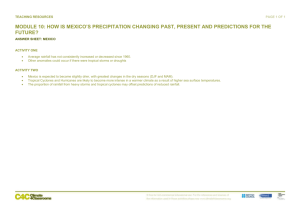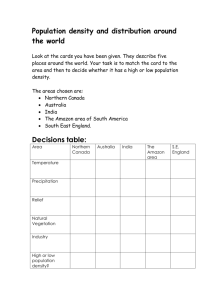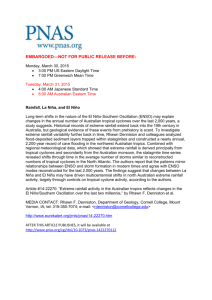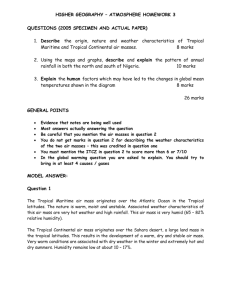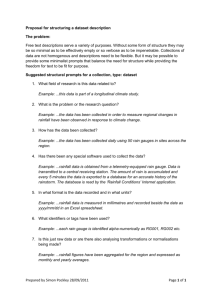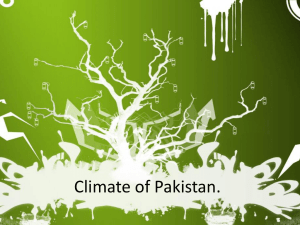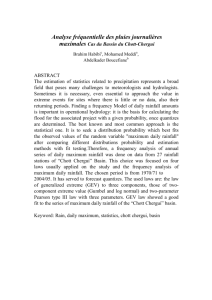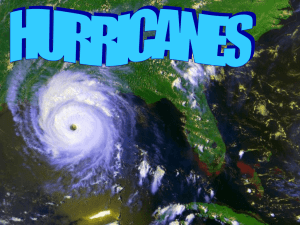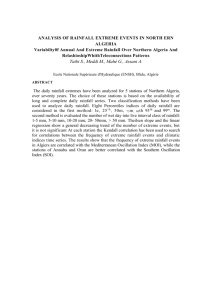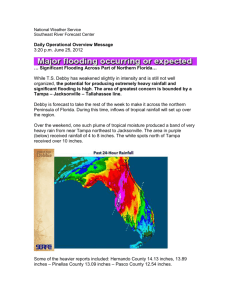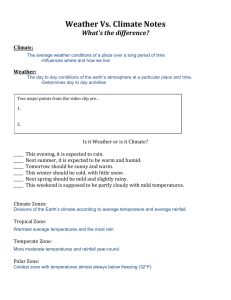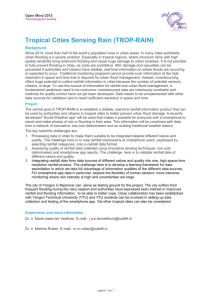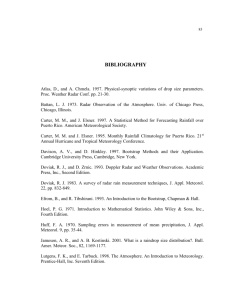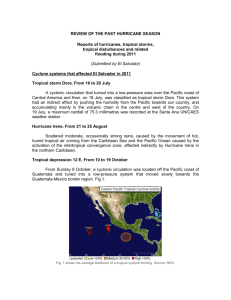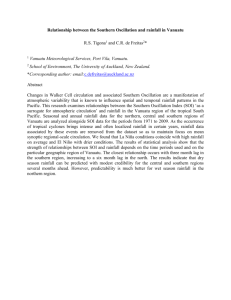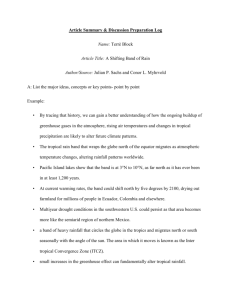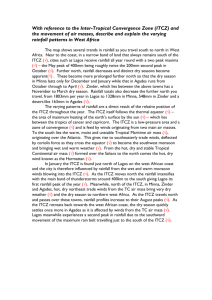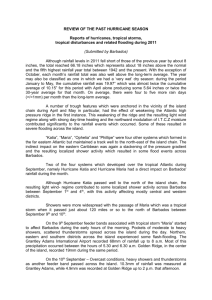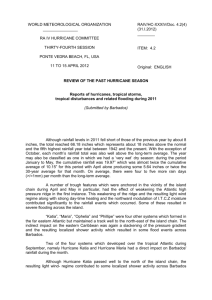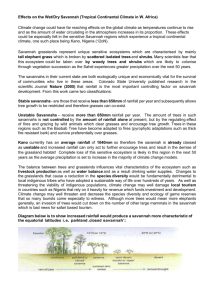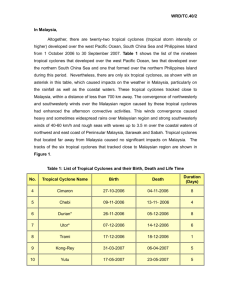Media Release
advertisement
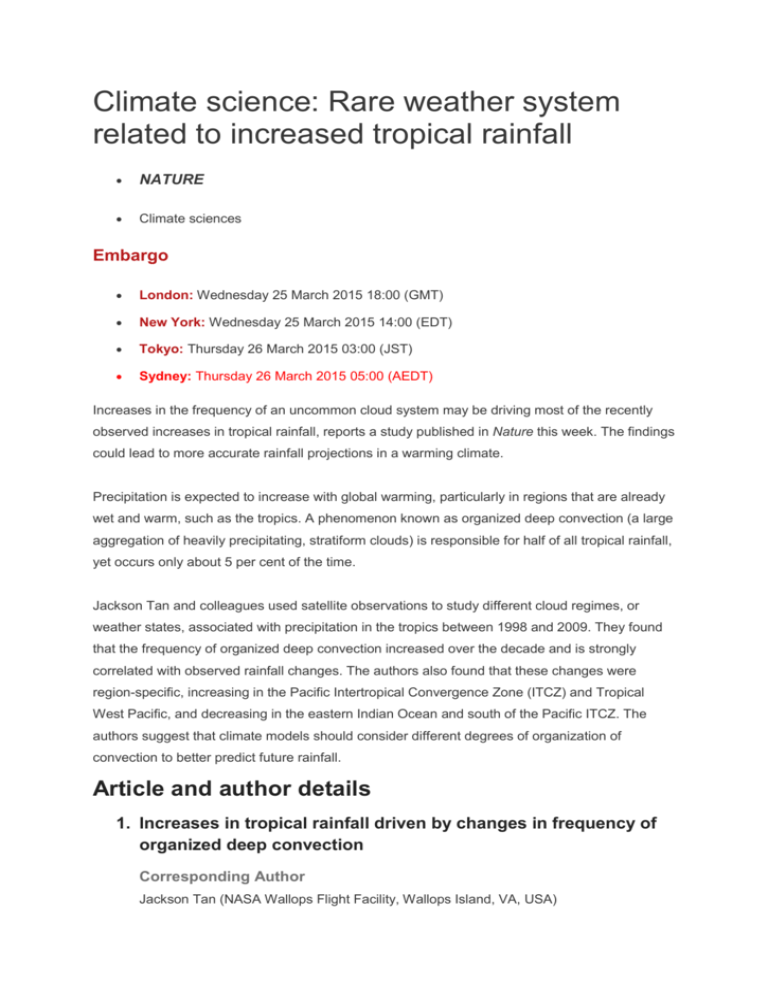
Climate science: Rare weather system related to increased tropical rainfall NATURE Climate sciences Embargo London: Wednesday 25 March 2015 18:00 (GMT) New York: Wednesday 25 March 2015 14:00 (EDT) Tokyo: Thursday 26 March 2015 03:00 (JST) Sydney: Thursday 26 March 2015 05:00 (AEDT) Increases in the frequency of an uncommon cloud system may be driving most of the recently observed increases in tropical rainfall, reports a study published in Nature this week. The findings could lead to more accurate rainfall projections in a warming climate. Precipitation is expected to increase with global warming, particularly in regions that are already wet and warm, such as the tropics. A phenomenon known as organized deep convection (a large aggregation of heavily precipitating, stratiform clouds) is responsible for half of all tropical rainfall, yet occurs only about 5 per cent of the time. Jackson Tan and colleagues used satellite observations to study different cloud regimes, or weather states, associated with precipitation in the tropics between 1998 and 2009. They found that the frequency of organized deep convection increased over the decade and is strongly correlated with observed rainfall changes. The authors also found that these changes were region-specific, increasing in the Pacific Intertropical Convergence Zone (ITCZ) and Tropical West Pacific, and decreasing in the eastern Indian Ocean and south of the Pacific ITCZ. The authors suggest that climate models should consider different degrees of organization of convection to better predict future rainfall. Article and author details 1. Increases in tropical rainfall driven by changes in frequency of organized deep convection Corresponding Author Jackson Tan (NASA Wallops Flight Facility, Wallops Island, VA, USA) Email: jackson.tan@nasa.gov, Tel: +1 757 824 2269 DOI 10.1038/nature14339 Online paper* http://nature.com/articles/doi:10.1038/nature14339 * Please link to the article in online versions of your report (the URL will go live after the embargo ends).
